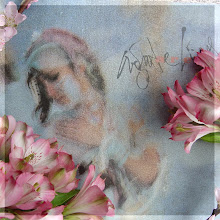
韋 應 物 ( Wei Yingwu, 737- 792) http://en.wikipedia.org/wiki/Wei_Yingwu
◎ 聞 雁 Hear the Wild Geese
故園渺何處?歸思方悠哉。 淮南秋雨夜,高齋聞雁來。
王 维 ( Wang Wei, 701- 761) http://en.wikipedia.org/wiki/Wang_Wei_(8th_century_poet)
◎ 竹 里 館 In the Bamboo Grove
獨坐幽篁裏,彈琴複長嘯。深林人不知,明月來相照。
張九齡 ( Zhang Jiuling, 673-740) http://en.wikipedia.org/wiki/Zhang_Jiuling
◎ 望月懷遠 The Moon is Far From Home
海上生明月,天涯共此時。 情人怨遙夜,竟夕起相思。
滅燭憐光滿,披衣覺露滋。 不堪盈手贈,還寢夢佳期。
滅燭憐光滿,披衣覺露滋。 不堪盈手贈,還寢夢佳期。
韓翃 ( Han I, Tang Dynasty)
http://zh.wikipedia.org/wiki/%E9%9F%93%E7%BF%83
◎ 酬程延秋夜即事見贈 A Reply to Cheng Yan's poem "On An Autumn's Night"
長簟迎風早,空城澹月華。 星河秋一雁,砧杵夜千家。
節候看應晚,心期臥已賒。 向來吟秀句,不覺已鳴鴉。
節候看應晚,心期臥已賒。 向來吟秀句,不覺已鳴鴉。
Dvořák's daughter Otilie married his student, the composer Josef Suk.
Janáček established a school of composition in Brno. Among his notable pupils were Jan Kunc, Václav Kaprál, Vilém Petrželka, Jaroslav Kvapil, Osvald Chlubna, Břetislav Bakala, and Pavel Haas (21 Jun.1899- 17 Oct.1944) . Most of his students neither imitated nor developed Janáček's style, which left him no direct stylistic descendants.




沒有留言:
張貼留言